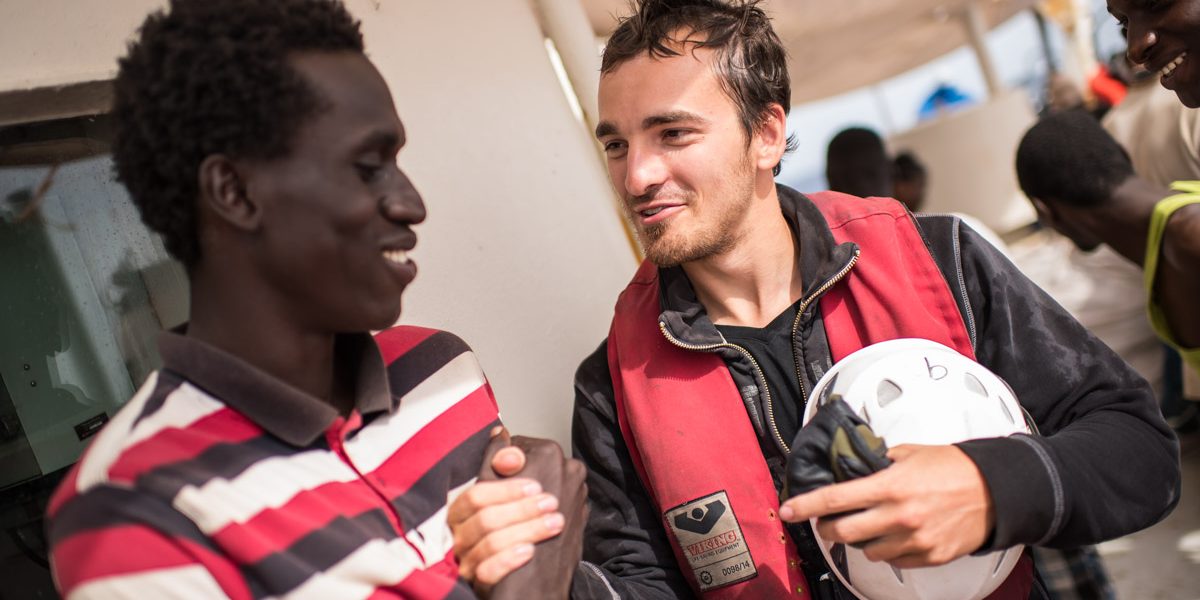Thank you Mr Chair,
I speak to you on behalf of Greenpeace International. This statement has been drafted together with Sea-Watch, a non-governmental organisation involved in search and rescue operations. It relates to an issue that is very important to both of our organisations: the urgent need to strengthen cooperation in response to the humanitarian crisis in the Mediterranean Sea.
We welcome document MSC 101/19 by the Secretariat and the endorsement by the United Nations General Assembly of the Global Compact for Safe, Orderly and Regular Migration and the Global Compact on Responsibility-Sharing for Refugees. The Global Compact on Migration specifically aims to “stimulate joint cooperation at all levels”, and wishes to engage civil society actors. In reality, Search and Rescue NGOs are actively pushed out of the Mediterranean. Greenpeace and Sea-Watch are concerned by measures taken by some governments to obstruct, criminalize and prosecute civil society organisations involved in providing life saving and humanitarian help in the Mediterranean Sea.
Since 2015, Sea-Watch has been directly witnessing unsafe mixed migration by sea, offering rescue capacity and aerial monitoring. Greenpeace and Sea-Watch wish to encourage a dialogue between SAR NGOs, IMO members and all relevant stakeholders to concretely resolve a situation where the legal framework applicable to search and rescue is at risk. To this end, we would like to outline the urgent need for cooperation.
First, the Global Compact seeks to address solutions concerning the management of migration on land; “before and after” the sea. But the issue of unsafe mixed migration at sea itself also needs to be addressed. At the same time, the existing legal framework for SAR is continuously undermined by State practice. The current context discourages any ship to engage in rescue operations in the Central Mediterranean due to the de-responsibilization of the authorities and the continuous delegation of rescue coordination to the Libyan Coast Guard.
Second, so far, there has been no interaction between SAR NGOs and the IMO. In the past, the NGOs have voiced concerns hoping to receive clarifications and clear positioning. These include the legitimacy of the Libyan SAR area, the role and modus operandi of the Libyan coastguard and its capacity to ensure an adequate SAR service, and the disembarkation in a POS which cannot be found anywhere in Libya according to SAR regulations and UN agencies.
An endorsement of the Global Compact is not enough. There is an urgent need to address maritime safety in the Mediterranean with a focus on the protection of human lives. SAR NGOs were not involved in the discussion, and on their behalf we would like to take today’s occasion to indicate Sea-Watch’s availability to enter a constructive dialogue, as well as to cooperate to support to merchant vessels in the region when confronted with unsafe mixed migration at sea. Indeed, the fact that public authorities do not feel responsible for rescuing people in distress in the Mediterranean sea, puts extra burden on merchant vessels.
The humanitarian space in the Central Mediterranean has shrunk to a point where SAR NGOs face massive challenges to carry out life-saving activities. We urge to collaborate to protect the legal framework applicable to search and rescue in the Central Mediterranean Sea.
Thank you for your attention.











